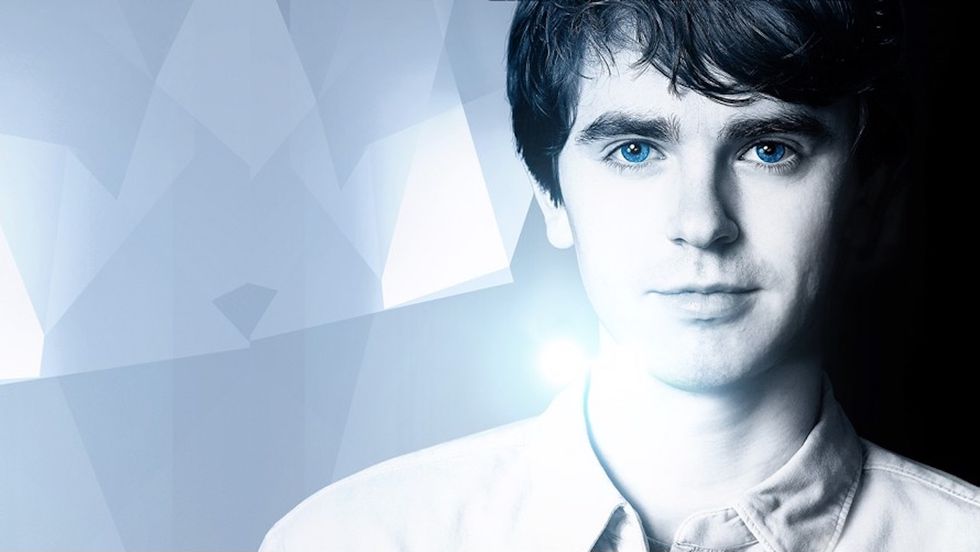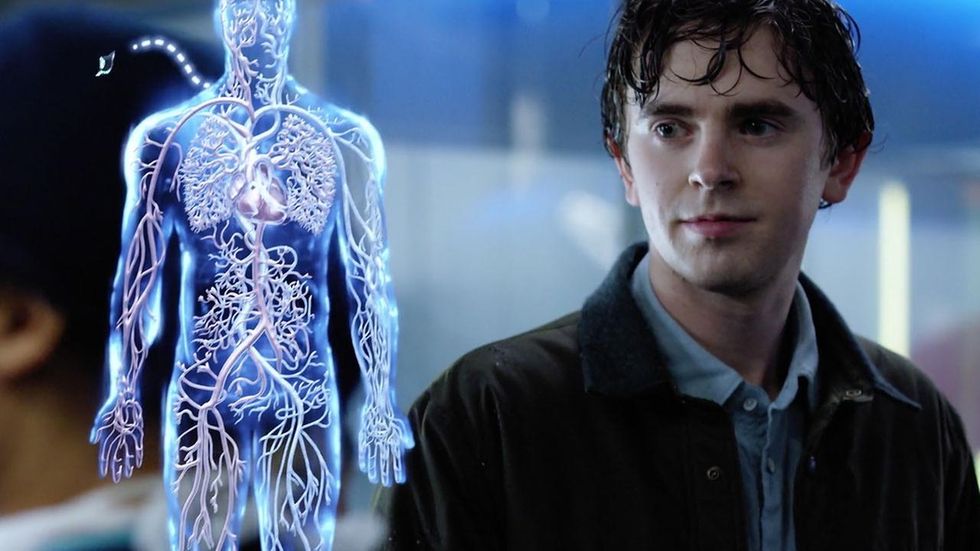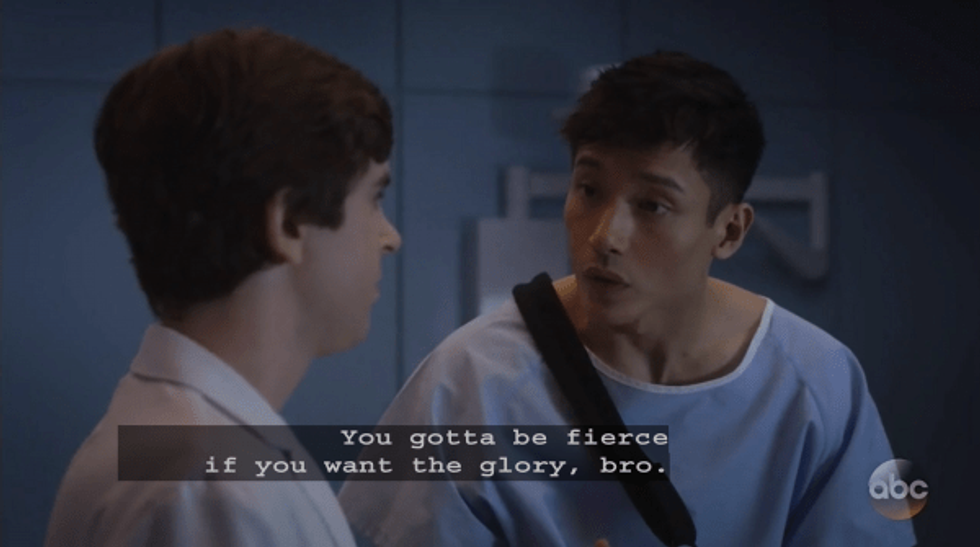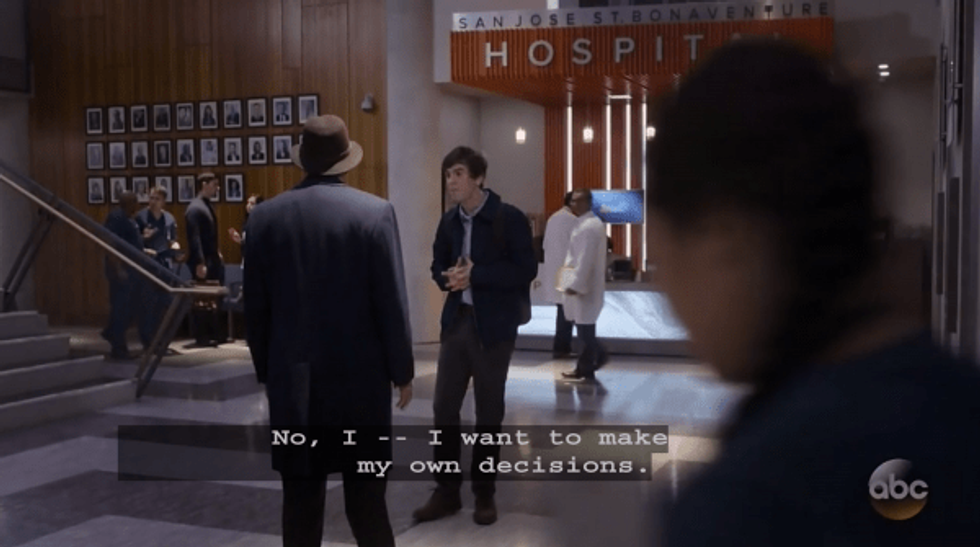Many have seen, if not heard of ABC's new show "The Good Doctor," which shares a story about Dr. Shaun Murphy and his journey as a doctor and individual. Dr. Murphy is unique in his own right; being diagnosed with both Autism--rather the higher functioning version of Aspergers and Savant syndrome.
I believe, especially in today's world, that mental health is often spared from many conversations; yet when we stop to reflect, we realize how important our mental health is in order to live a better life. This is definitely a show to help us as a society to get there.
The show brings to common light aspects that are often overlooked, such as prejudices, mental health, and themes like honesty, determination to beat criticism, and real-life situations among many others with a bit of comic relief to soothe the serious mood.
For starters, the Encyclopedia of Children's Health defines the psychopathology as occurring "when a person with below normal intelligence displays a special talent or ability in a specific area." Whereas the same source defines Autism as "a severely incapacitating developmental disorder of brain function characterized by three major types of symptoms: impaired social interaction, problems with verbal and nonverbal communication, and unusual or severely limited activities and interests;" yet, Dr. Murphy is even more of a special case as he fits the description as "autistic savant."
It may seem oxymoronic, being considered a higher-functioning autistic while also being a savant, yet the Autism Research Institute states that the abnormality "refers to individuals with autism who have extraordinary skills not exhibited by most persons," which is indeed applied to the character within the show.
Moreover, savant skills are not confined entirely to the autistic community, and neither are all autistic individuals savants. A 1978 article in Psychology Today, written by Dr. Bernard Rimland, coined the more appropriate term 'autistic savant,' as the contemporary label away from the French meaning of an unlearned idiot; benefitting the stigmatized and those outside looking towards the nature of the syndrome as a whole.
Especially with an estimated prevalence of savant abilities within autistic individuals being 10%, while prevalence within the non-autistic community, in addition to those with mental retardation (cognitively impaired), is less than one percent.
Moreover, the most notable forms of savant ability involve mathematical calculations, memory feats, artistic abilities, and musical abilities. Out of these, Dr. Murphy exhibits memory feats; where he instantaneously recalls parts of the human anatomy; say the heart's ventricles and circuitous pathways, and thinks of a possible solution.
It is still unknown as to why some autistic individuals possess savant abilities, yet there are innumerable theories, and no evidence to prove the hypotheses right or wrong.
For example, Dr. Rimland deems that these individuals possess surprising concentration abilities and can focus their complete attention on specific areas of interest. To put it plainly, psychological researchers feel as though memory and cognition will reach a complete understanding when the autistic savant phenomena is no longer a mystery.
As a whole, the show can be referenced to "Rain Man," the original known representation of an "autistic savant," and since the 1988 release of the film the notion of how these individuals are wired has sparked many interests. With that in mind, it is easier to see the structure of the show and how the inner workings of each episode affect the characters, and viewers alike.
The central aspect I pull from this show is that Dr. Murphy is seen as somebody who is different compared to the preliminary and inducted doctors and still combats his demons all the while.
The pilot episode introduces the Dr. Murphy in an airport--eventually saving a child's life and attempts to get into St. Barnaba's Hospital in San Jose, California once he arrived. His caretaker Dr. Glassman vouches that he is capable and aside from his disabilities, the person inside deserves a chance.
Much like the prejudices of cognitive health; which is a somewhat unique topic, gender, and racial biases exist that have other characters learn a lesson as well, and it is critical to see how it influences the psyche of those involved.
As the show proceeded and developed further, we see more growth and influence from his surroundings: both on an intrapersonal and interpersonal level. The scars from his abusive father and death of his brother still have a say in his life, which is another reason as to why he tries hard and battles his autistic tendencies (as best as autistically possible) to overcome his downfalls.
Finally, by the time the mid-season finale rolled around, it's interesting to see how much momentum Dr. Murphy has gained; the impact he's had on patients, colleagues, even a friend that lives in his apartment building. This episode truly hit home as a patient (a haughty professional gamer named Bobby) was required to get a tendon in his arm operated on; which freed the patient's mindset that all must go on, regardless of the pain.
Another problem resulted from a solution and the next agenda was operating on his brain-stem to rid of existing cancer; resulting in paralysis on his left side. Aside from that Dr. Murphy has received emotional support through his many conversations with Bobby and even came to the conclusion that nobody has the authority in saying what he, as an autistic, and an individual is capable of doing.
Bobby has been the only character to be truly empowering his Shaun's eyes; which stems from Bobby's own denial of accepting what he cannot control and choosing to see the glass half full. Shaun takes everything he's experienced thus far, including his conversations with Bobby to Dr. Glassman where he blatantly declared that psychiatrist appointments are not what he wants and that his own decisions should be weighed with a bit more respect.
As much of a “savant" Shaun is, it is apparent that his social skills are lacking, so picture being under the microscope on a constant trip of approval constantly trying to prove your worth. Then in one instant, a patient, that drops in sees the potential and the struggle that others refuse to take the time to acknowledge and respect.
In total, the show is a must-watch and you will do justice from viewing it yourself. As a takeaway: think of all we experience in our lives, the pros, and cons. Multiply that with being on the spectrum and held at arm's length in terms of being deemed inadequate and subjugated with a label that reads psychopathology and dependency creeping up on all fronts.




















